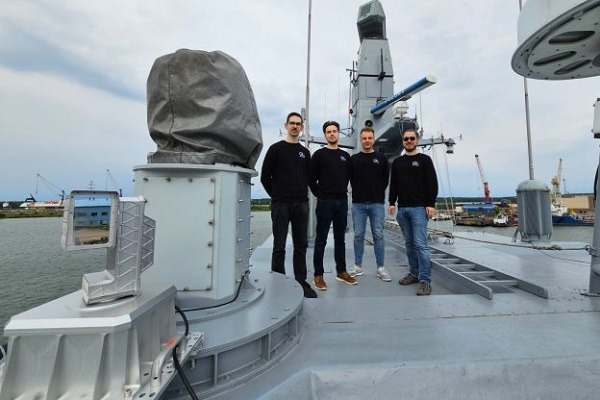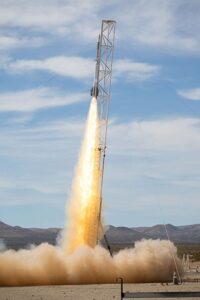In environments where radio links may be unreliable or compromised, maintaining stable connectivity is critical
In a demonstration of secure, unjammable communication, Lithuanian space and defense tech company Astrolight has successfully tested its POLARIS free-space laser terminal at sea in collaboration with the Lithuanian Navy.
The trial took place between two naval vessels operating in the Baltic Sea – a region experiencing a growing number of radio interference incidents affecting ship communications and geolocation. This is a concern for naval operations that rely on unimpeded situational awareness.
In environments where radio links may be unreliable or compromised, maintaining stable connectivity is critical. By using laser-based links instead of radio waves, systems like POLARIS offer a secure and interference-free alternative. The main difference from radio-based communication is that POLARIS signal is very hard to detect and jam, making it ideal for use in radio-silent or radio-denied environments.
During the demonstration, the POLARIS terminal showed rapid establishment of the link and maintained a stable connection throughout the mission, confirming its ability to operate fully outside the radio frequency spectrum.
“Wartime reality shows that secure, high-speed communication shouldn’t rely only on vulnerable radio signals,” said Laurynas Mačiulis, CEO of Astrolight. “This demo proves that our technology is working well and is ready to address this challenge. In contested environments, radio silence isn’t just a precaution but a tactical necessity. It’s a firm step towards our goal to provide NATO naval vessels with resilient communication for the modern digital battlefield.”
Development of the POLARIS system was initiated through Lithuania’s Ministry’s of National Defense national defense technology development program. In simple terms, POLARIS is based on a technology that transmits data using an invisible, safe laser beam that can transfer large amounts of information between ships or other platforms up to 50 kilometers apart at speeds of up to 1 Gbps.
“The Polaris project marks an important milestone in the development of next-generation communication technologies for the Lithuanian Armed Forces,” said Commander Lieutenant Justinas Žukauskas, Senior Specialist at the Naval and Air Combat Platforms Division of the Defence Resource Agency under the Ministry of National Defence, who participated in the prototype testing evaluation team. “The successful demonstration confirms the system’s potential to deliver secure, high-bandwidth laser-based communication while significantly reducing electromagnetic signatures – a capability especially valuable for naval operations in a tactical environment, such as the Baltic Sea. It is particularly gratifying that what began as part of a maritime hackathon is gradually becoming a reality.”
Lieutenant Commander Žukauskas stressed the significance of the project for the Lithuanian Navy and for NATO as a whole “as the end user, the Lithuanian Navy stands to benefit greatly from this innovation. The prototype will now be handed over for further testing and integration into the structures of the Lithuanian Armed Forces, thereby strengthening Lithuania’s military capabilities and contributing to NATO’s broader goals in resilient and stealth-compatible communications.”
Astrolight confirmed upcoming further tests with the Navy and NATO
“Further testing with the Lithuanian Navy as well as in upcoming NATO exercises will be instrumental to further refining the POLARIS product,” added Dalius Petrulionis, CTO of Astrolight. “The first test in a maritime environment achieved better-than-expected results, surpassing those outlined in the technical specification, indicating that POLARIS can achieve reliable links over horizon-limited distances.”
“This test proves that tactical communication can be faster, safer, and smarter,” concluded Mačiulis. “POLARIS wasn’t built to compete with radio – it was built to take over where radio fails or it cannot be used due to a hostile environment.”
The Ministry of National Defence has indicated that it will continue to support emerging technologies through its annual calls for defense R&D, ensuring that projects like POLARIS continue to scale from prototype to deployment.







